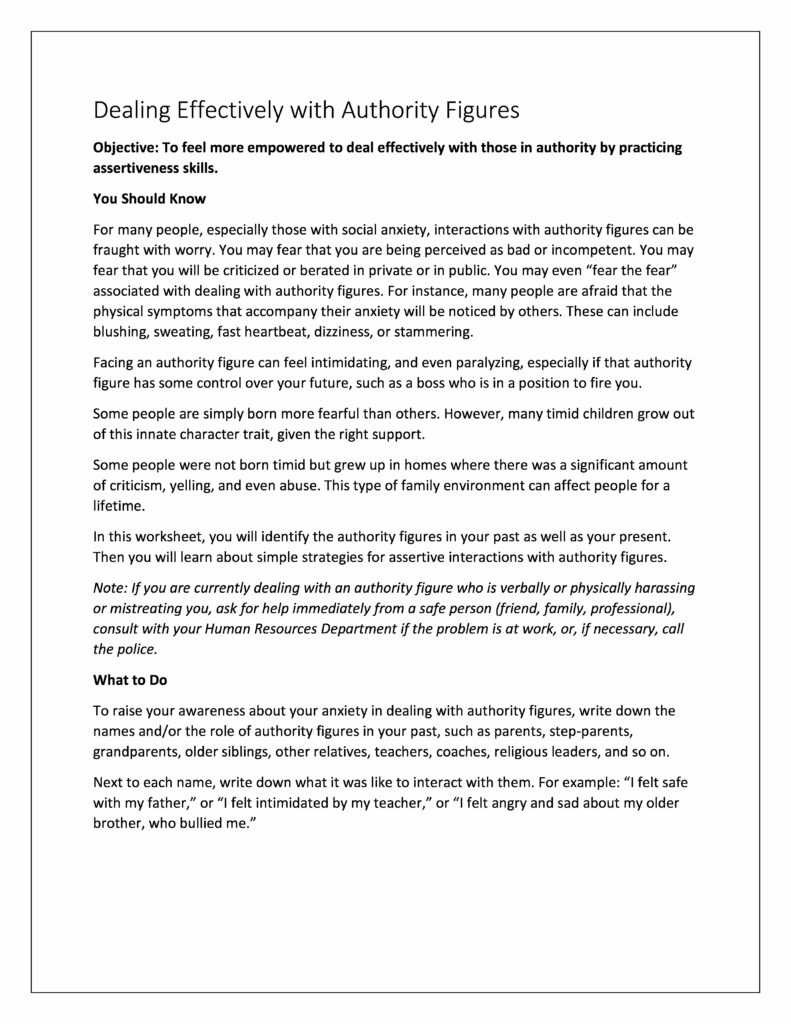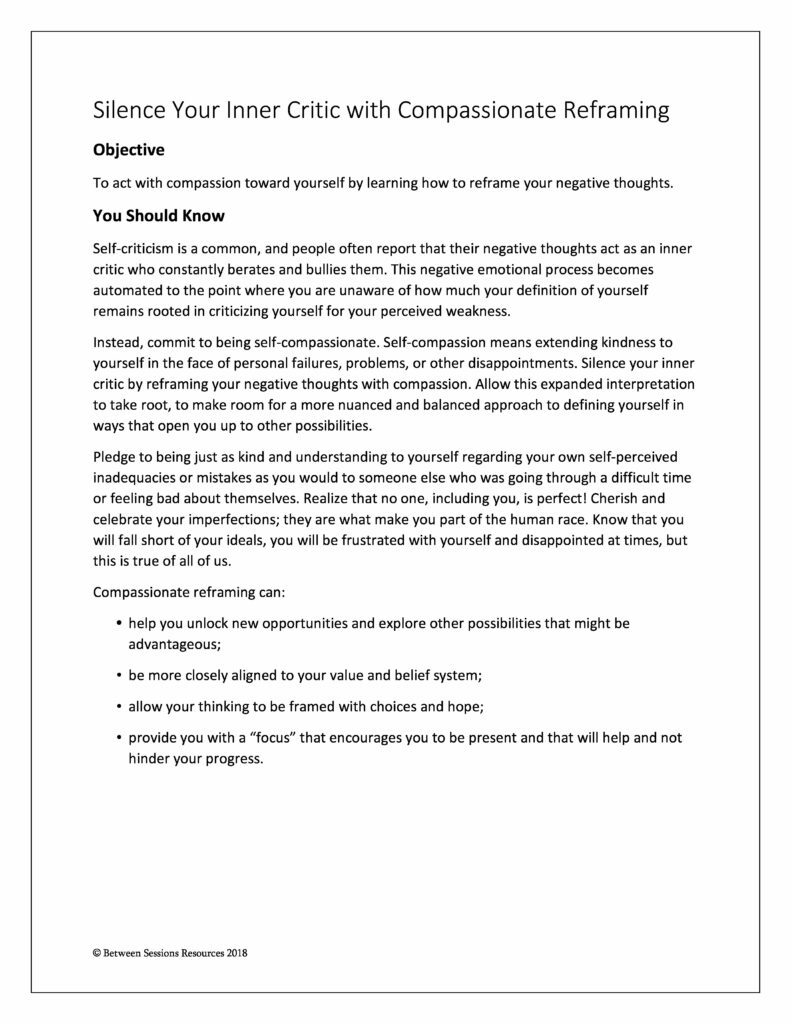Studies tell us that when professionals prescribe therapeutic homework, clients report significantly better outcomes. Our worksheets are derived from evidence-based therapies, and they are designed by experienced professionals. Use the navigation links on the left of this page to view tools in a specific category. Or use the search box at the top of this page to find the exact tool you are looking for.
To modify the tools, click the ‘Send to Client’ button by each tool to open the Psychology Forms Filler. You can then edit the tool as you see fit and either print it out or send it to a client to be filled out online. Click here for a tutorial on using the Psychology Forms Filler.
If you can’t find what you are looking for on this site, please let us know by
clicking here and our team of writers, graphic artists, and therapists will custom-design it for you.
This worksheet is designed to help people with anxiety disorders determine if they also need to seek treatment for depression. It explains the major symptoms of depression and links to an online screening for depression. It also asks people to keep track of how often they do activities that bring meaning to their lives and to assess the level of difficulty of this task as a possible indicator of depression. (GAD, Generalized Anxiety Disorder, 1118)
This worksheet is designed to help people determine whether their anxiety is affecting their physical health. The worksheet asks people to identify their physical health problems, note the frequency that these problems occur, and rate how these problems are affected by their worrying and anxiety. People are also asked to think about how changes in their health habits might improve their overall well-being. (GAD, Generalized Anxiety Disorder, worry, 1119)
This worksheet encourages people to make a list of the reasons that they shouldn’t be using alcohol or drugs if they have problems with addiction. They are encouraged to create a list that would be visually appealing so that they will look at it often. (1118)
This worksheet is designed to help a person in your family with problems by using a family contract. Creating a family contract will help you addresses your role in your loved one’s struggles, identify the family members specific problems and behaviors, and determine the best strategies for providing useful assistance. A family contract is designed to help a family be proactive in supporting a family member, while still not impeding the person’s sense of self-reliance and self-worth. (contracts, 1118)
This worksheet is designed to help people reflect on how they deal with authority figures. It asks people to consider how they have dealt with authority figures as far back as their childhood, and how they are dealing with authority figures in the present. The worksheet also suggests a number of simple assertive techniques. (social anxiety, passivity, shyness, workplace issues, relationships, 1118).
This worksheet is designed to help people find a way to deal with recurring intrusive thoughts. It asks people to learn and practice a 5-step procedure of accepting rather than fighting their thoughts. (anxiety, GAD, OCD, 1118)
This worksheet is designed to help people with social anxiety overcome their self-consciousness in social situations. It is designed to help people pay attention to what is happening around them rather than just on their inner experiences. (social anxiety, shyness, self-esteem, 1118)
This worksheet is designed to help couples identify harmful or verbally abusive patterns in their communication partner and learn healthier ways of approaching conflicts. (couples communication, marital therapy, couples counseling, conflict management, 1018)
This worksheet is designed to help people reframe their self-criticism and develop a more compassionate attitude towards themselves. People are asked to think about the critical words they use to describe themselves and to substitute their put-downs with more compassionate thoughts. (self-esteem, self-talk, self-image, 1018)
This worksheet is designed to help couples find new ways to show that they understand each other’s point of view. Skills covered in this worksheet include: active listening, responding non-defensively, positive communication. (couples communicating, marriage, 1018)










